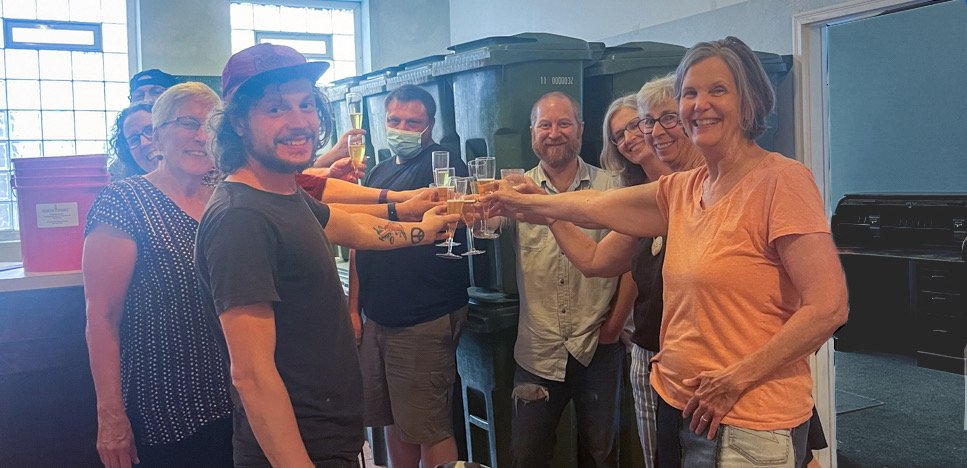Collective Resource Compost Cooperative: Own the Solution
Collective Resource Compost Cooperative. It has a nice ring to it, doesn’t it? On July 1st, 2023, we became a hybrid co-op that includes three levels of ownership: Worker-Member, Consumer-Member, and Supporter-Owner.
Why are we taking this step?
It’s the next logical step in the life of the company that our employees and our community be able to own a part of it. Our business model is based on community, and how we want to work in the world is communal, not competitively. Founder Erlene Howard has been the sole owner for 13 years and is planning for retirement. Instead of selling the business, she is creating an opportunity for the current and future employees and our beloved composting community to continue the legacy of this mission-based company.
If you’ve been with us for a while, you have probably intuited our mission. It is:
To mitigate climate change by recovering organic resources through commercial composting and zero waste education, and by doing so, support workers, contribute to the local economy, and create a community around sustainability.
New website
We’re excited to be launching a new website that will have much more functionality. You’ll be able to pay for your service and more in the customer portal, access all of the co-op info, including the bylaws and membership agreements, and you can join us from there. Three types of ownership shares are available for purchase: Worker-Member, Consumer-Member, and Supporter-Owner. Worker-Members are employees only. Consumer-Members are members of our composting community who use our service. Supporter-Owners are any other U.S. Citizens who would like to support our work.
Other Co-ops
I think people are most familiar with housing and food co-ops, but there are all kinds of co-ops. In the town of Evanston, there is Evanston Development Cooperative, an architecture and general contracting residential construction firm co-op. In Chicago, Dill Pickle Food Co-op has been serving the Logan Square/Avondale community since 2009, and Sugar Beet Food Co-op has been serving their community in Oak Park since 2015. In Chicago, there are two emerging food co-ops that are part of our composting community: Chicago Market in Uptown and Wild Onion Market in Rogers Park. We have felt very supported both by the cooperative community here and in other parts of the country. The general manager from Chicago Market, Dan Arnett, helped us to find an accounting firm experienced in working with cooperatives and has in general been a great sounding board. We’re so grateful! Inspiration for becoming a co-op came in part from a Cleveland-based, worker-owned composting cooperative, Rust Belt Riders, whom Erlene met online in 2020.
Why are other cooperatives so helpful?
Cooperation is a value baked into every cooperative. It's right there in the name! Cooperatives around the world generally operate according to the same core principles and values adopted by the International Co-operative Alliance in 1995. Cooperation among cooperatives is number 6 on this list of the 7 Cooperative Principles:
Voluntary and Open Membership
Democratic Member Control
Members’ Economic Participation
Autonomy and Independence
Education, Training, and Information
Cooperation among Cooperatives
Concern for community.
The Board
Our steering committee will become the board at our August 2023 Board Meeting. We’re looking forward to introducing you to your co-op leaders more fully in future communication. We’re excited to take this step into the world of cooperatives, and we hope that you will take it with us.
Collective Resource Compost Cooperative Steering Committee/Board:
Erlene Howard—President
Mary Beth Schaye—Vice President
Christopher Lowery—Vice President
Bethany Rave—Treasurer
Dana Deane—Secretary
Ronald Phillips—Worker Representative
Jesus Maldonado—Worker Representative
Catherine Nagler—Consumer Representative*
Joseph Romeo—Consumer Representative
*March 2024 Update: Catherine Nagler completed a year of service in this role, and we now have a new Consumer Representative, Mike Garfield.


